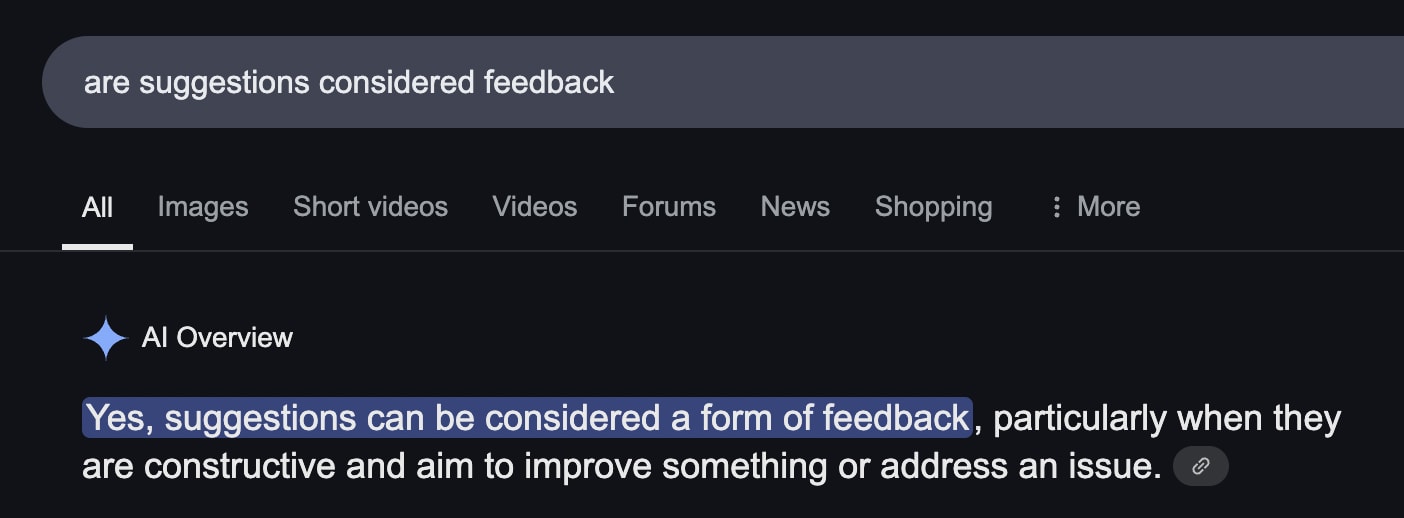It is standard form in EA to state one's welcomingness of feedback, both in a personal and professional capacity. Individuals and organisations alike often have many means by which you can deliver feedback, whether through anonymous forms or direct communication, and forum posts will often begin or end with:
"I'm open to feedback..."
"I'm looking for feedback of the following nature..."
"I'm very full because I ate feedback for breakfast, but there's always room for more..."
And so on.
I'm now wondering: what happens if you write, "I am not open to feedback". Literally, is that even allowed? I've never seen it done. I'm concerned to see such homogeneous thinking on the topic and I find it alarming that a community which espouses openness would be so closed off to non-openness.
How is it that not a single person in this intellectual, professional, personal community, or rather, in the sphere of this idea or philosophy, or whatever EA is.... Sorry, that sentence got too long, let me try again:
How is it possible that not a single person in EA holds a feedback-resistant worldview?
I fear – and now highly suspect – that stating a refusal to receive feedback would lead to an instant forum ban and possibly further ostracisation. I am not curious to hear from the forum team nor from moderators, I intend to hold this suspicion closely and indefinitely. I do not have an anonymous feedback form and I will be employing strong downvotes if I even catch a whiff of something that vaguely gestures in the direction of feedback, based solely on my personal conception of what feedback is.
I encourage downvotes of this post and disagree reacts, as I would then feel more confident that everyone is similarly closed off to alternate views. Although, those could also be interpreted as a disagreement of my very premise, which feels a lot like feedback. Understandably, I'm still working through the details (and I do not welcome outside perspective).
In any case, I would like to formally state my categorical refusal to ever again receive feedback of any form. I expect this to extend to my professional work (I've gone ahead and deleted the 1-on-1 document between myself and my manager. I'm sure he'll understand. And even if he doesn't, I won't know).
Please confirm whether you can see this post.




This is a really good idea actually, but I have to be fundamentally opposed to this comment, sorry :(